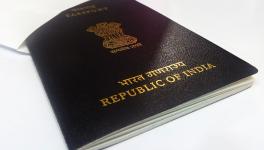Japanese Universities Losing Battle With Foreign Rivals
Academics in Japan are concerned that the nation's population decline will lead to more private universities declaring bankruptcy.
Japanese universities are slipping down the rankings of the world's top academic institutions, with many struggling to secure research funding. Fewer international students are choosing Japan for their education, and the number of doctoral students is also falling.
In many cases, Japanese universities are being overtaken by rivals in China, South Korea and Singapore.
Population slumping
There are a total of 780 universities, colleges and vocational schools in Japan, with 2.93 million students enrolled as of 2022.
The total number of students has been virtually unchanged for the last decade, but is likely to start declining in the near future. There were 2.05 million 18-year-olds in Japan in 1992 — but a mere 1.12 million in 2022.
Just as worrying as a shrinking pool of potential students is the reputation of Japanese universities on the world stage.
In July, the Times Higher Education (THE) magazine released its 2023 ranking of the top 100 institutions with just two Japanese schools making the list.
The University of Tokyo ranked 39th on the list — down from 35th spot the previous year — while Kyoto University was down to the 68th spot from 61st last year.
The rankings are bound to be a major disappointment for the government. Ten years ago, the ministry of education set the the target of having at least 10 universities in the top 100 within the following decade.
"The decline in Japanese universities in these rankings is rooted in the reforms that the education ministry rolled out about 30 years ago and turned national universities into independent administrative organizations, meaning that effectively they had to financially fend for themselves," said Yakov Zinberg, a professor of international relations at Tokyo's Kokushikan University.
Financial support shrinking
"As the government support dried up, both financial and in terms of resources, professors found themselves spending more time running around looking for sponsorship instead of doing research or writing academic papers," said Zinberg, who has been teaching at the tertiary level in Japan for nearly 20 years.
Many Japanese universities actively began targeting foreign students in the early years of the 21st century. And many were kept solvent thanks to students from China who believed a qualification from a Japanese school would benefit their careers, Zinberg said.
"But these rankings show that Japanese universities are falling in the world rankings while Chinese universities are climbing, so those students are less likely to come here now," he added.
"Inevitably, I've seen standards go down at the places that I have taught," he added. "It's the shortage of financial support and professors too busy trying to secure funds that they just no longer have time to carry out research and write papers."
Yoko Tsukamoto, a professor at the Health Sciences University of Hokkaido, said she has also detected a decline in the abilities of Japanese students beginning degree courses.
"There are fewer children now so it is less competitive to get into a college than it was a few years ago and, in my experience, there are a lot of professors who spend a lot of time chasing students like they are high school pupils," she told DW.
"They are often immature and professors are exhausted trying to help them as well as teach them."
Another trend Tsukamoto has noticed in recent years has been a general lack of a desire to study overseas.
"They're not interested in expanding their horizons, partly because it 's just too challenging for them," said Tsukamoto, who completed her doctorate at Stanford University in California.
"It is actually quite shocking to me that lots of first-year students have only been out of Hokkaido once or twice, and then on school trips to other parts of Japan. Most don't even have a passport."

Many Japanese universities actively began targeting foreign students in recent decades
Overseas opportunities rising
The lack of funding for research is also in sharp contrast to the financial incentives available in other countries, she added.
"If you are a good professor and you want to do good research, then why would you stay in Japan?" she asked. "There are plenty of opportunities for those people in other parts of the world."
The end result, Tsukamoto said, is a vicious circle in which there are fewer high-quality universities in Japan vying for a shrinking pool of students who do not have to worry too much about their grades as Japan has a worsening labor shortage and they are effectively guaranteed a job as soon as they graduate.
At the same time, academics have less time and fewer resources to pursue their studies and are looking for better opportunities elsewhere.
"It's really worrying as declining academic standards will very soon be reflected in a less capable workforce for the nation," she added.
Edited by: Keith Walker
Get the latest reports & analysis with people's perspective on Protests, movements & deep analytical videos, discussions of the current affairs in your Telegram app. Subscribe to NewsClick's Telegram channel & get Real-Time updates on stories, as they get published on our website.



















